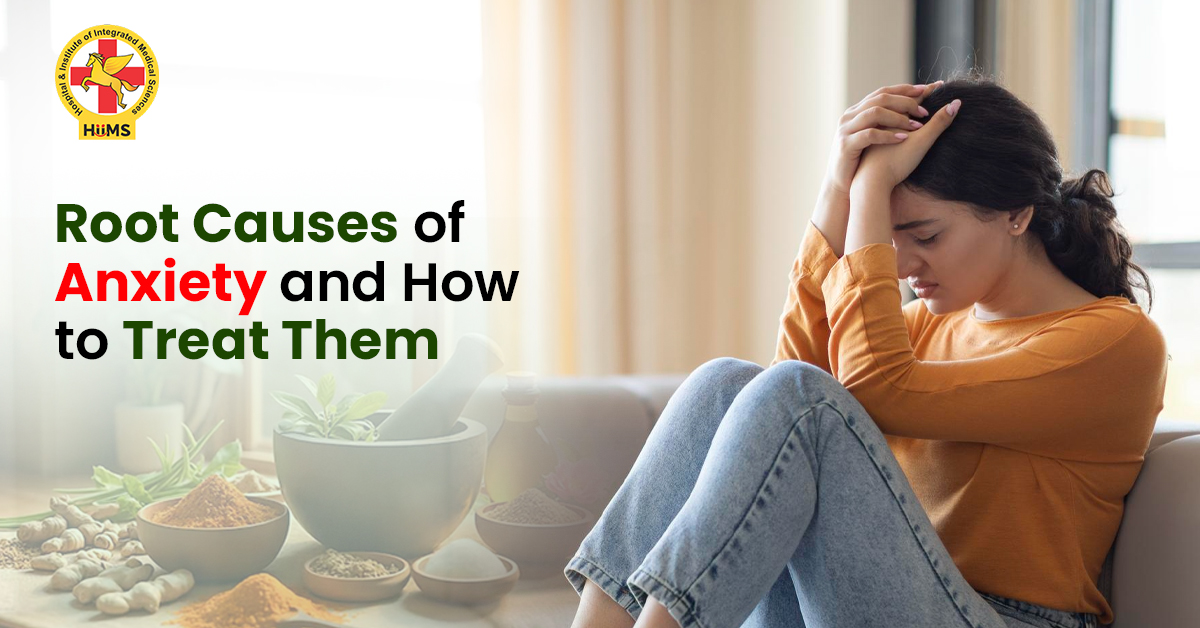You know that strange, uneasy feeling that arrives without warning, catching you off guard while your heart races and your mind refuses to slow down? One moment everything seems fine, and the next, even simple tasks like making a cup of tea or replying to a message feel overwhelming. That creeping heaviness is often the beginning of anxiety, appearing almost sneakily and leaving you uncertain about what’s happening, while many people dismiss it as “just stress” and convince themselves it will pass.
Over time, however, these feelings can persist and intensify, quietly building in the background and signaling that attention is needed. Symptoms such as racing thoughts, restless sleep, and sweaty palms are not random; they are your body trying to communicate that something is off. Effective anxiety treatment does not begin with instant solutions or sudden breakthroughs; it starts with awareness, listening to your body, and making small, manageable changes in your daily life.
Early Signs You Shouldn’t Ignore
Spotting anxiety early can make all the difference:
- Restlessness: Constant movement. Fingers tapping. Legs shaking. A feeling of never being fully settled.
- Racing Thoughts: Your mind jumps from one worry to another, without a pause button.
- Physical Changes: Tight chest, rapid heartbeat, sweaty hands, shallow breathing.
- Disturbed Sleep Patterns: Falling asleep feels impossible. Staying asleep is even worse.
- Sudden Irritability: Feeling snappy or overwhelmed for no clear reason.
Recognising these signs early opens the door to timely anxiety treatment, before it becomes a daily struggle.
Why Anxiety Develops in the First Place
There isn’t one single reason. Causes of anxiety usually pile up quietly, a mix of small pressures and inner shifts.
Everyday Pressures That Add Up
Too much work, unfinished arguments, family tension that never really settles, money worries that sit in the back of the mind all of it creates a slow, steady weight.
- Internal Changes: Hormones shift, long-standing health problems drag on, or the nervous system stays on edge for too long, shaking emotional peace.
- Emotional Patterns in Families: Anxiety disorder in family history can leave its own imprint. You may react more strongly, feel deeper, worry faster.
- Memories That Refuse To Fade: Old pain, sudden loss, fear, or unresolved moments can resurface quietly and disturb the present.
- Habits That Wear You Down: Poor sleep, endless coffee, sitting still too long, avoiding people who slowly thin out mental strength. Understanding your own triggers helps you regain a bit of control. And clarity, even small, reduces fear.
When an Anxiety Attack Strikes Suddenly
Sometimes anxiety doesn’t build slowly it crashes in. Here’s what can help in the moment:
- Slow Your Breathing: Inhale deep. Hold. Exhale long. Repeat until it steadies.
- Ground Yourself: Notice your surroundings. The floor beneath your feet. A sound. A nearby object.
- Name the Feeling: Say it softly: “I feel anxious.” It creates distance from the panic.
- Shift Your Space: Walk outside, stretch, change position. Movement helps the mind reset.
- Reach Out: Call or message someone safe. You don’t have to carry it alone.
It won’t disappear instantly, but it will soften. And that matters.
Long-Term Anxiety Treatment: Consistency Over Perfection
Healing isn’t neat. Some days feel lighter. Others don’t. That’s normal.
Simple habits to focus on:
- Daily Walks: Even 15–30 minutes helps settle the nervous system
- Balanced Eating: More natural foods, less sugar, moderate caffeine
- Stable Sleep Rhythm: Fixed bedtime, gentle night routine
- Mindful Practices: Journaling, slow breathwork, light yoga
- Support Systems: Therapy, counselling, structured anxiety attack treatment programs
Progress may wobble. Keep going anyway. Small steps repeat into real change.
Deep Ayurvedic Approaches for Calming the Mind
For ongoing stress and emotional exhaustion, Ayurveda offers time-tested head therapies that restore balance and quiet overactive thoughts. These therapies don’t just mask the feeling — they work deeper, where anxiety actually settles.
SHIRODHARA
Warm herbal oil flows slowly across the forehead in a soft line. Tension eases, leaving the mind lighter.
Benefits:
Gentle warmth moves through the body
Improves sleep patterns
Relaxes the mind
Emotions feel less sharp
SHIRO PICHU
A small cotton pad soaked in medicated oil rests on the crown of the head, giving the mind quiet space.
Benefits:
Eases tight, bottled-up mental strain
Relieves dull head pressure
Gives the overworked mind rest
SHIRO BASTI
Warm herbal oil stays on the scalp longer, allowing nerves and tissues to slowly unwind.
Benefits:
Controls intense anxiety
Deeply relaxes nerves
Supports stress-related sleep problems and low mood
Ayurvedic Herbs That Support Emotional Balance
- Ashwagandha: Reduces cortisol, builds resilience, stabilises mood
- Brahmi: Clears the mind, improves focus
- Jatamansi: Encourages deeper, restful sleep
- Tagar: Helps with sudden panic or emotional overwhelm
These herbs work gently, strengthening the mind over time.
Integrated Healing at Jeena Sikho HiiMS
At Jeena Sikho HiiMS, doctors focus on the whole person mind, body, digestion, and sleep, not just anxiety disorder.
Along with anxiety treatment, they also care for:
- Liver issues
- Heart conditions
- Infertility
- Cancer
- Jaundice
- Other complex health concerns
Conclusion
Anxiety treatment is gradual, often in small unnoticed steps. Awareness, consistent habits, and guided support slowly restore calm. Sleep improves, thoughts settle, the body loosens, and life begins to feel manageable. Patience, daily attention, and a little guidance make the difference. Begin your journey at Jeena Sikho HiiMS, where structured anxiety treatment and gentle guidance bring real relief. Call 98766-63038 to start today.
FAQs
1. What is anxiety treatment?
A mix of lifestyle adjustments, Ayurvedic therapies, and professional guidance to calm the mind and build emotional strength.
2. What causes anxiety attacks?
Sleep loss, sudden stress, overwhelming responsibilities, or too much caffeine can trigger episodes.
3. Can Ayurveda help manage anxiety?
Therapies like Shirodhara and herbs like Ashwagandha gradually calm the mind and improve sleep.
4. How do daily habits affect anxiety?
Simple routines like steady sleep, light exercise, and mindful eating ease tension and make the mind steadier.
5. Where can I seek reliable care?
Jeena Sikho HiiMS provides personal anxiety treatment, combining medical insight with whole-body care for lasting balance.

